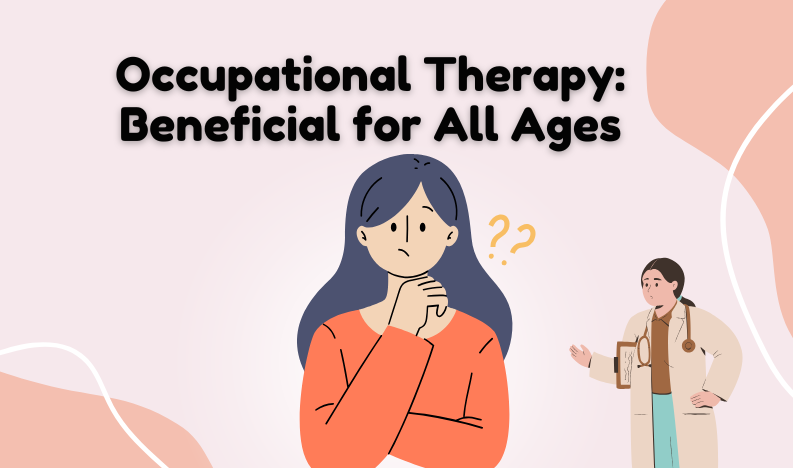Occupational Therapy is a type of healthcare that uses everyday activities, exercises, and other therapies to help people of all ages develop skills and improve their quality of life. Occupational Therapy can help with a wide range of issues, including:
Physical development
Occupational Therapy can help with fine and gross motor skills, balance, posture, and muscle tone.
Cognitive development
Occupational Therapy can help with focus, problem-solving, and information processing.
Social and emotional development
Occupational Therapy can help with social skills, communication, and self-calming techniques.
Daily life skills
Occupational Therapy can help with basic life skills like bathing, getting dressed, and brushing teeth.
Occupational Therapy is not just for kids:
Benefits people of all ages: Occupational Therapy can help people of all ages with physical, sensory, or cognitive challenges.
Helps with a variety of needs: Occupational Therapy can help with emotional, social, and physical needs.
Improves independence: Occupational Therapy can help people regain independence in all areas of their lives.
Recovering from an illness, accident, or injury: Occupational Therapy can help adults regain independence and return to work or home life. They can help develop new skills for daily tasks, like personal care and household chores. They can also help make changes to the home or work environment to make it safer and easier.
Improving quality of life for older adults: Occupational Therapy can help older adults maintain their independence and enhance their quality of life. They can help with problems that develop with aging, like difficulty getting out of bed. Occupational Therapists can also suggest equipment and home adaptations, or new techniques that may be helpful.
Improving mental health: Occupational Therapy can help improve life satisfaction, pain control, and overall mental health.
Helping with cognitive problems: Occupational Therapy can help improve cognitive skills, such as memory and attention. They can also provide strategies for managing day-to-day tasks.
Assessing home safety: Occupational Therapists can assess the home for hazards and make recommendations to ensure home safety.
Telehealth : Occupational Therapists can provide remote consultations, therapy sessions, and follow-ups through telehealth platforms. This can be especially beneficial for adults who live in remote areas or have mobility challenges.
Dr. Sherrylene Mathur






Comments are closed